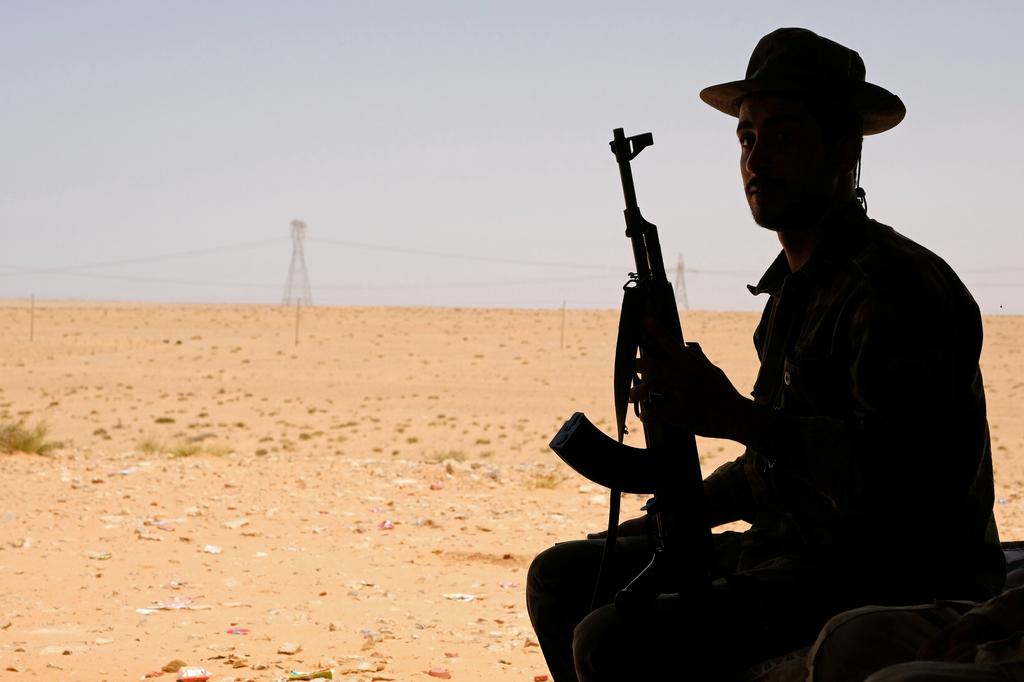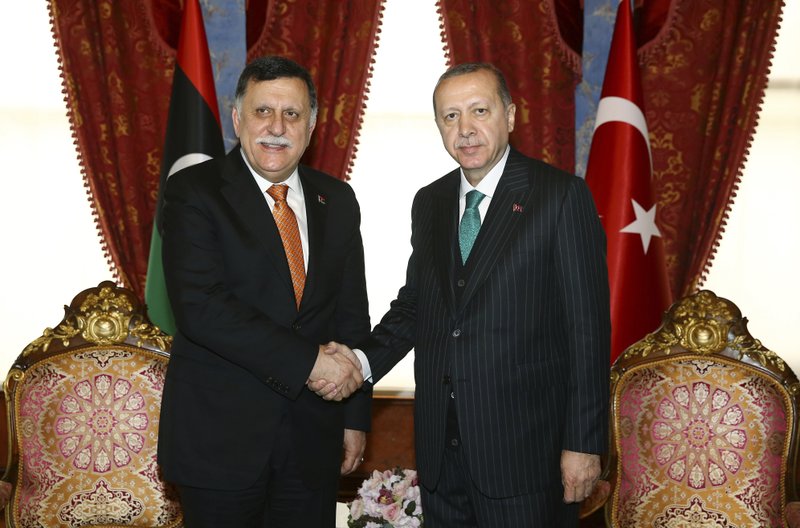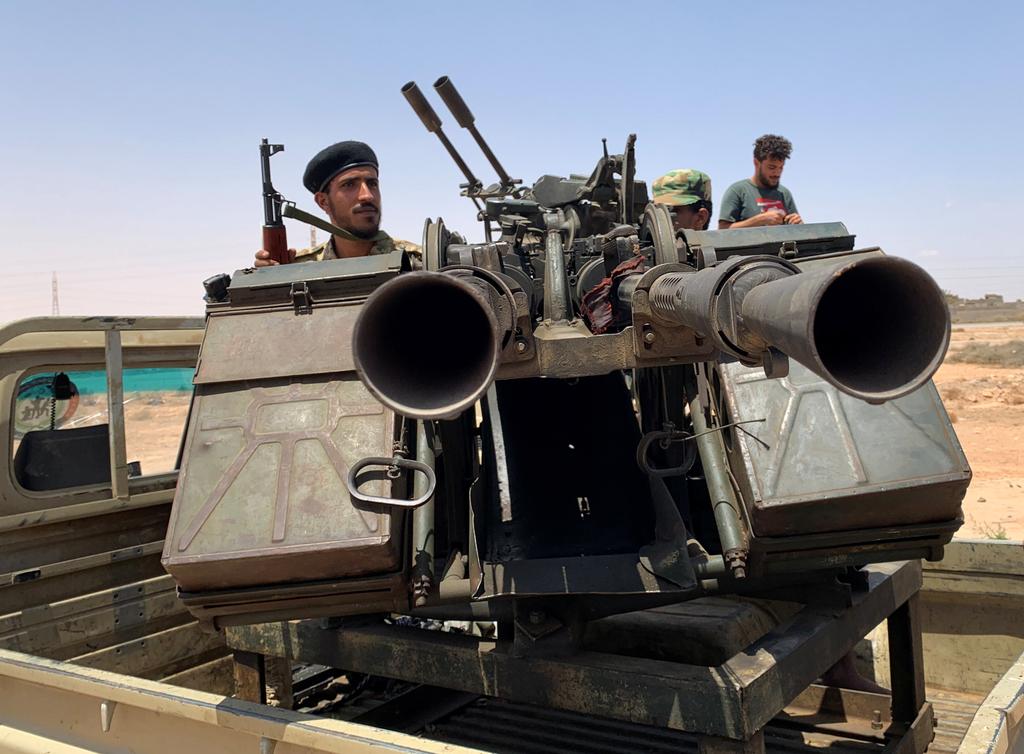Arab foreign ministers gathered on Thursday in the Libyan coastal city of Sirte to finalize the agenda of the 22nd Arab Summit, scheduled to begin on Saturday despite the expected absence of several Arab heads of state.
The meeting, chaired by Moussa Kossa, secretary to Libya’s People’s Committee for Foreign Liaison and International Cooperation, was also devoted to drafting proposed summit resolutions.
During his opening address, Kossa urged Arab states to "take action to lift the siege imposed on the Palestinian people and to salvage Jerusalem,” in a reference to ongoing efforts by Israel to "Judaize" the city.
Qatari Minister of State for Foreign Affairs Ahmad Abdullah el-Mahmoud, who handed over chairmanship of the meeting to his Libyan counterpart, advised Arab ministers to overcome their differences.
"The Arab world is faced with many crises and challenges that have put them in the teeth of the storm," Mahmoud said. "The worst result would be a crisis of confidence among Arab countries."
Inter-Arab reconciliation has been advocated by several countries, including Syria, which has proposed the creation of a mechanism for resolving disputes between Arab states.
On Wednesday, Syrian President Bashar el-Assad called for the Arab world to close ranks and "rescue Jerusalem from Israeli schemes"–an objective that seems unlikely given that roughly one third of Arab leaders have declined to participate in the event, including those of Egypt, Iraq, Lebanon, Oman and the United Arab of Emirates. The participation of Saudi monarch King Abdullah and Palestinian Authority (PA) President Mahmoud Abbas also remains unconfirmed.
On top of the two-day summit’s agenda will be the need to forge a unified Arab stance regarding a US-backed proposal for indirect talks between Palestinians and Israelis.
Earlier this month, Arab foreign ministers endorsed Washington’s plan to launch “proximity talks” between Israel and the PA. Arab backing of indirect talks, however, is conditional on the talks not becoming an open-ended process.
US mediation efforts received a further blow this month when Israel announced plans to build 1,600 Jewish-only housing units in Ramat Shlomo, a settlement built on West Bank land annexed by Israel following the 1967 war.
Prior to the summit–the first ever to be held in Libya–Arab League Secretary-General Amr Moussa suggested that all peace talks with the self-proclaimed Jewish state be suspended.
"Negotiations with Israel at this time are pointless," he said.
Some analysts, however, downplayed the Arab threat to end support for negotiations with Tel Aviv.
“The Arab leaders might introduce rhetorical changes in their resolutions, but the substance will remain the same,” said Tarek Fahmy, an expert in regional affairs at the Cairo-based Middle East Research Institute.
He added that the Arab "moderate" camp–which includes Egypt, Saudi Arabia, Jordan and the PA–does not want to jeopardize what it sees as a readiness on the part of US President Barack Obama to exert pressure on the cabinet of Israeli Prime Minister Benjamin Netanyahu.
“Washington has been sending signals that it is willing to press the Israelis for more concessions,” Fahmy explained. He went on to say that Obama felt more empowered to press the Israelis with the backing of the European Union and after the successful passage of his historic healthcare bill in the US.
Fahmy added that secret talks had been taking place between the Obama administration and some Arab capitals, including Cairo and Riyadh, about convening an international conference aimed at launching comprehensive peace talks on all tracks.
“The Americans are thinking of Camp David II, which will engage all parties including Syria and Lebanon,” said Fahmy.
On Friday, Egypt and Israel will commemorate the 31st anniversary of the signing of the 1979 Egypt–Israel Peace Treaty, which came on the heels of the 1978 Camp David Accords. In 1994, Jordan became the second Arab country to sign a peace deal with Israel.
The outcome of Netanyahu’s visit to the US this week, meanwhile, remains unknown.
"The president asked the prime minister to take steps to build confidence for proximity talks so that progress can be made towards comprehensive peace," Obama spokesman Robert Gibbs told reporters on Wednesday.
Nevertheless, Gibbs conceded there were some "areas of disagreement."
Netanyahu was expected to meet with senior members of his pro-settler cabinet later on Thursday to consider a package of goodwill gestures drawn up by his and Obama’s advisers in a flurry of meetings before his departure from Washington.
"We think we have found a golden way that would allow the Americans to move the peace process forward while preserving our national interests," Netanyahu said before leaving the US capital.
Gibbs said US officials sought clarification about further Israeli building in Jerusalem, after a city official on Wednesday announced that final approval had been given to develop a neighborhood from which Palestinians were evicted last year.
The project calls for 20 housing units to be built on the site of the defunct Shepherd Hotel in Jerusalem’s Sheikh Jarrah neighborhood, where a Jewish-American millionaire has been buying up property for settlers.
The European Union issued a statement saying it "condemns the recent decision of the Israeli authorities to authorize construction around the Shepherd Hotel in East Jerusalem."
In a related development, Moussa plans to present the gathering in Sirte with a proposal to establish a forum by which Arab states and neighboring countries can bolster political and security cooperation.
The forum, to be dubbed the “League of Arab Neighbors,” is designed to include Turkey, Iran, Nigeria, Chad, Ethiopia, Greece, Spain and Italy, according to two Arab diplomats that spoke with Al-Masry Al-Youm on condition of anonymity. All the above-mentioned countries have land or sea borders with Arab states.
“Moussa will suggest that all Arab states unanimously agree to the list of neighboring countries he proposes,” one diplomat said. Declining to confirm whether Moussa had consulted previously with other Arab states on the issue, the diplomat said the Arab League chief would request that the summit be “delegated” with opening a dialogue with Tehran with the aim of exchanging ideas of mutual interest.
Fahmy expressed optimism that Moussa’s proposal would be embraced by summit participants.
“Everybody should know by now that engaging Iran formally in the region’s political dynamics should produce fruitful results for all sides,” said Fahmy.
“Iran is a key player in Iraq, Lebanon and the Palestinian Territories," he added, "so it’s prudent to open contacts with it.”




